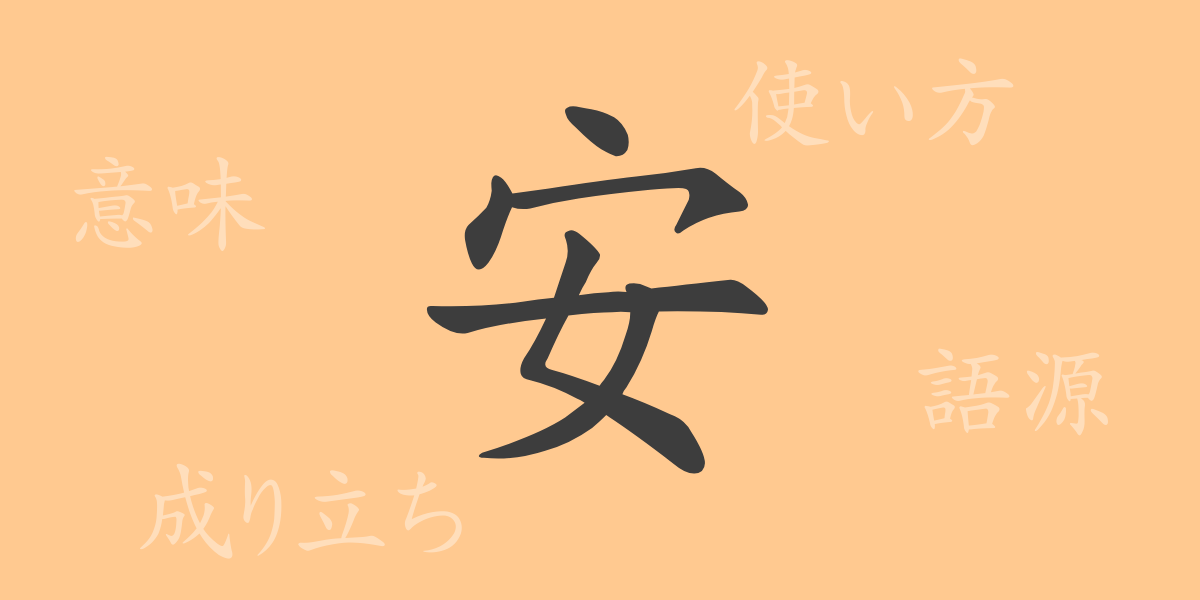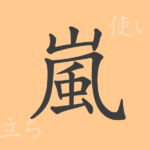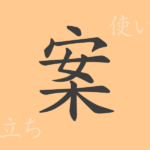“
Japanese culture and language are rich with kanji that carry deep meanings. Among these, the kanji ‘安 (An)’ is closely tied to concepts that are integral to our lives and appears frequently in many idioms and proverbs. This article focuses on the kanji ‘安’, exploring its etymology, meanings, usages, and even the common phrases and proverbs where it’s used, providing an in-depth look at its significance.
Origins of 安 (An)
The kanji ‘安’ originates from ancient Chinese oracle bone script, where it was depicted symbolically as a woman in a house, conveying ‘peace and stability at home.’ It combines the radical ‘宀 (Ukanmuri)’ representing a house, with ‘女’ symbolizing a woman, illustrating a woman’s presence bringing tranquility to a home. Over time, it has evolved to mean peace and stability more broadly.
Meaning and Usage of 安
The kanji ‘安’ generally means ‘peaceful’ and ‘free from danger or worry.’ It encapsulates both mental peace and physical safety and is commonly used in various forms such as adjectives and nouns like ‘安心 (peace of mind),’ ‘安全 (safety),’ and ‘安定 (stability).’
Readings, Stroke Count, and Radical of 安
Understanding the readings, structure, and elements of the kanji ‘安’ is essential:
- Readings: On’yomi (on reading) is ‘An,’ while Kun’yomi (kun readings) include ‘Yasu-i,’ ‘Yasu-maru,’ ‘Yasu’.
- Stroke Count: The kanji ‘安’ consists of 6 strokes.
- Radical: Its radical is ‘宀’ (Ukanmuri), which is associated with houses or buildings.
Phrases, Idioms, and Proverbs Using 安
The kanji ‘安’ features in many Japanese idioms, proverbs, and phrases, reflecting its widespread usage and cultural significance:
- 安心 (Ansin): A state of being free from worry, feeling secure.
- 安全 (Anzen): A state free from danger or risk.
- 安定 (Antei): A condition of being stable and balanced.
- 安売り (Yasuu-ri): Selling goods at a price lower than usual.
- 安易 (Ani): Doing things without careful thought, the easy way out.
- ‘安物買いの銭失い(yasumonoga-ino-zeniusina-i)’: A proverb meaning buying cheap goods often leads to poor quality, costing more in the long run.
Summary of 安
The kanji ‘安’ represents concepts deeply embedded in our daily lives. From its origins to its modern meanings and usages, and its appearance in various idioms and proverbs, ‘安’ reflects our desire for peace, safety, and stability. Understanding the profound meanings packed into this single character helps us appreciate the richness of the Japanese language and the values we cherish.
“

























